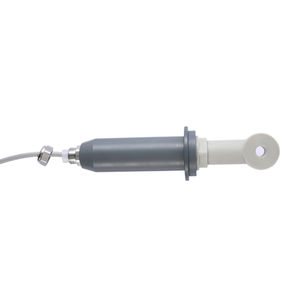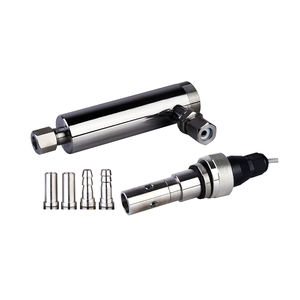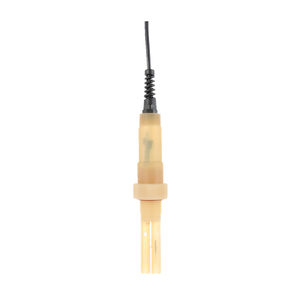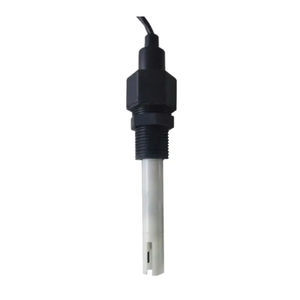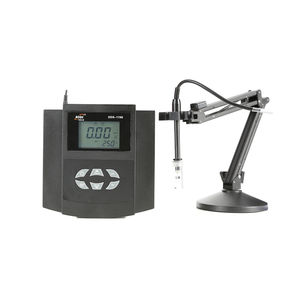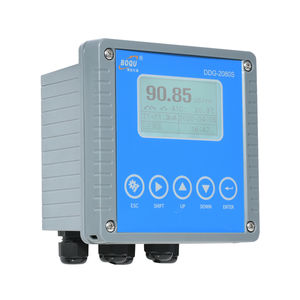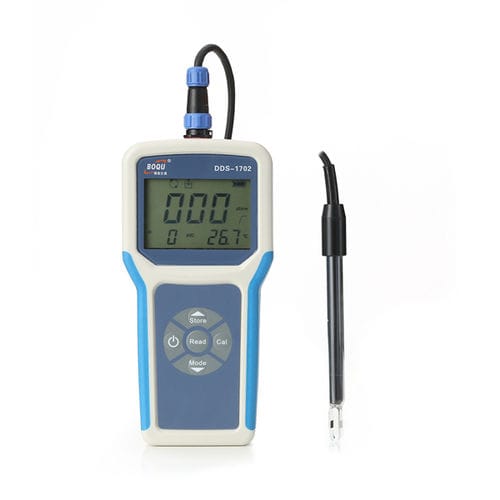
- Metrology - Laboratory
- Analytical Instrumentation
- Portable conductivity meter
- Shanghai Boqu Instrument Co.,Ltd.
- Company
- Products
- Catalogs
- News & Trends
- Exhibitions
Portable conductivity meter DDS-1702 with automatic temperature compensationwith data loggerwater
Add to favorites
Compare this product
Characteristics
- Type
- portable
- Other characteristics
- with automatic temperature compensation, with data logger
- Applications
- water
Description
DDS-1702 Portable Conductivity Meter is an instrument used for the measurement of the conductivity of aqueous solution in the laboratory. It is widely used in petrochemical industry, bio-medicine, sewage treatment, environmental monitoring, mining and smelting and other industries as well as junior college institutions and research institutes. If equipped with conductivity electrode with the appropriate constant, it can also be used to measure the conductivity of pure water or ultra-pure water in electronic semiconductor or nuclear power industry and power plants.
★ Multiple function: conductivity, TDS, Salinity, Resistivity, Temperature
★ Features: automatic temperature compensation, high price-performance ratio
★ Application: electronic semiconductor, nuclear power industry, power plants
Conductivity is a measure of water’s capability to pass electrical flow. This ability is directly related to the concentration of ions in the water
1. These conductive ions come from dissolved salts and inorganic materials such as alkalis, chlorides, sulfides and carbonate compounds
2. Compounds that dissolve into ions are also known as electrolytes 40. The more ions that are present, the higher the conductivity of water. Likewise, the fewer ions that are in the water, the less conductive it is. Distilled or deionized water can act as an insulator due to its very low (if not negligible) conductivity value. Sea water, on the other hand, has a very high conductivity.
Catalogs
No catalogs are available for this product.
See all of Shanghai Boqu Instrument Co.,Ltd.‘s catalogsOther Shanghai Boqu Instrument Co.,Ltd. products
Conductivity
Related Searches
- Gas analyser
- Concentration analyser
- Monitoring analyser
- Liquids analyser
- Automated analyzer
- Dust analyzer
- Process analyser
- Portable analyser
- Continuous analyser
- Integration analyser
- Water analyser
- Real-time analyser
- Digital analyser
- In-line analyser
- Calibration analyser
- Temperature analyser
- Sampling analyser
- Waterproof analyzer
- Analyser for the food industry
- RS485 analyser
*Prices are pre-tax. They exclude delivery charges and customs duties and do not include additional charges for installation or activation options. Prices are indicative only and may vary by country, with changes to the cost of raw materials and exchange rates.


